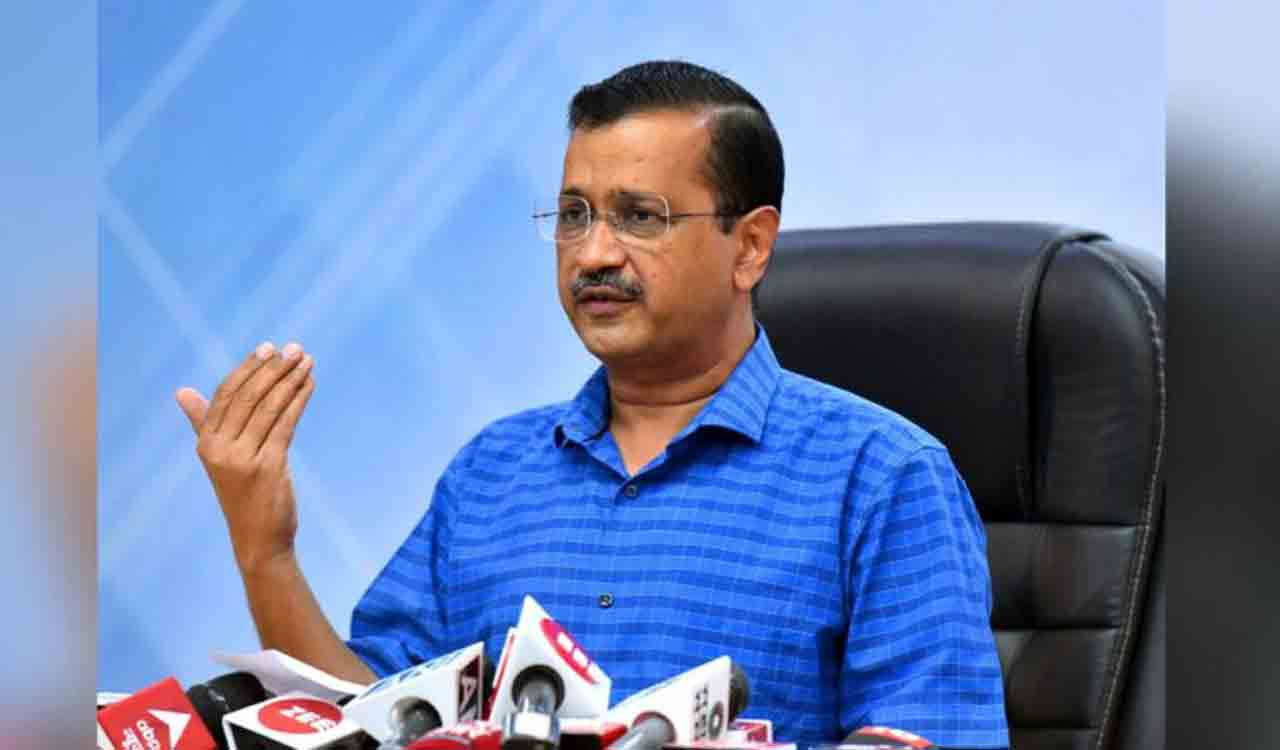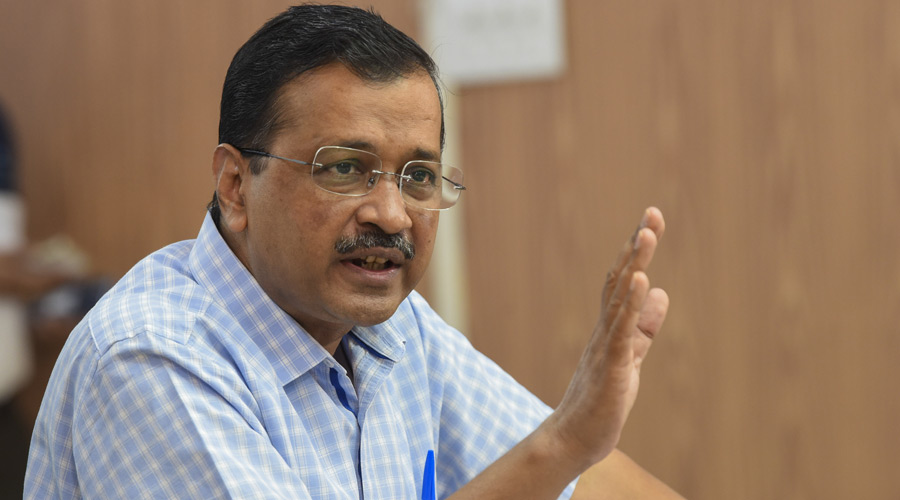BJP, AAP trade barbs after Arvind Kejriwal gets ED summons; Delhi government alleges conspiracy

BJP, AAP trade barbs after Arvind Kejriwal gets ED summons; Delhi government alleges conspiracy
The recent development involving the issuance of summons by the Enforcement Directorate (ED) to Delhi Chief Minister Arvind Kejriwal has sparked a heated political discourse between the Aam Aadmi Party (AAP) and the Bharatiya Janata Party (BJP). In response to the summons, the AAP accused the Central government of attempting to dismantle the party by targeting its national convenor.
The BJP, on the other hand, welcomed the ED summons, emphasizing the need for Chief Minister Kejriwal to provide an explanation regarding the alteration of the liquor excise policy and the alleged beneficiaries of the purported seven percent commission. This stance reflects the BJP’s commitment to ensuring accountability and transparency in governance and its willingness to scrutinize and address potential irregularities in public policy and administration.

As the situation unfolds, the confrontation between the AAP and the BJP highlights the widening political divide and the escalating tensions between the two parties. The ED summons has intensified the political discourse, underscoring the need for a thorough and impartial investigation into the matter to ascertain the facts and uphold the principles of transparency and accountability in public service.
The response from AAP leader Saurabh Bharadwaj, denouncing the ED summons to Chief Minister Kejriwal as an attempt by the Central government to dismantle the party, underscores the intensifying political tension and the party’s stance on the matter. His remarks emphasize the party’s perspective that the summons is part of a broader campaign to suppress the AAP through the initiation of what they perceive to be baseless allegations and legal action against their leadership.

On the other hand, Delhi BJP Chief Virendra Sachdeva’s comments highlight the BJP’s viewpoint, portraying the ED summons as an opportunity to shed light on Chief Minister Kejriwal’s alleged misconduct. By alluding to the Chief Minister’s self-proclaimed reputation for honesty, Sachdeva’s statement suggests that the current situation may challenge the narrative of Kejriwal’s integrity and ethical conduct, bringing to the forefront what the BJP sees as potential missteps or wrongdoing.
The contrasting perspectives between the AAP and the BJP illustrate the divergent narratives surrounding the ED summons, underscoring the polarized political climate and the increasing scrutiny placed on the actions and integrity of public officials. The unfolding developments highlight the significance of transparency, due process, and a fair and impartial investigation to uphold the principles of justice and accountability in governance.

Delhi BJP Chief Virendra Sachdeva’s remarks, highlighting the upcoming questioning of Chief Minister Kejriwal in the alleged liquor policy case, reflect the BJP’s focus on the need for transparency and accountability in governance. Sachdeva’s reference to the Supreme Court’s dismissal of the bail plea of arrested leader Manish Sisodia, along with the court’s observation of a substantial money laundering scam worth Rs 338 crore, underscores the BJP’s stance on the severity of the allegations.
Sachdeva’s questions regarding the changes made in the excise policy, the increase in commission from five to 12 percent, and the alleged beneficiaries of the seven percent commission shed light on the BJP’s commitment to unraveling the intricacies of the case. By seeking clarification on the recipients and destination of the purportedly misappropriated funds, Sachdeva’s statement aligns with the party’s dedication to upholding transparency and ensuring accountability in matters of public policy and financial administration.
As the matter continues to unfold, Sachdeva’s comments highlight the BJP’s resolve to address the issues surrounding the alleged irregularities and financial improprieties, emphasizing the importance of a thorough and impartial investigation to uncover the truth and uphold the principles of justice and accountability in governance.
The recent developments in the case, including the Enforcement Directorate’s summons to Chief Minister Kejriwal and the Supreme Court’s dismissal of former Delhi Deputy Chief Minister Manish Sisodia’s bail plea, signify the intensifying legal scrutiny and judicial examination of the alleged Delhi liquor policy scam.
The ED’s decision to summon Kejriwal for questioning on November 2 marks a significant development in the ongoing investigation, suggesting an increased focus on gathering pertinent information related to the case. Furthermore, the Supreme Court’s ruling on Sisodia’s bail plea underscores the gravity of the allegations and the court’s commitment to ensuring a fair and expeditious trial process, highlighting the need for timely and effective judicial intervention.
Justice Sanjiv Khanna’s observation that certain aspects pertaining to the transfer of Rs 338 crore appear to be tentatively established underscores the growing recognition of the complexities involved in the case. The directive to complete Sisodia’s trial within six to eight months, with the provision for a bail application after three months if the trial progresses slowly, highlights the judiciary’s dedication to expediting the legal process and ensuring the timely delivery of justice.
As the legal proceedings continue to unfold, these developments underscore the significance of a comprehensive and impartial investigation, underlining the imperative of upholding the principles of transparency, accountability, and justice in addressing alleged financial improprieties and ensuring the rule of law.



